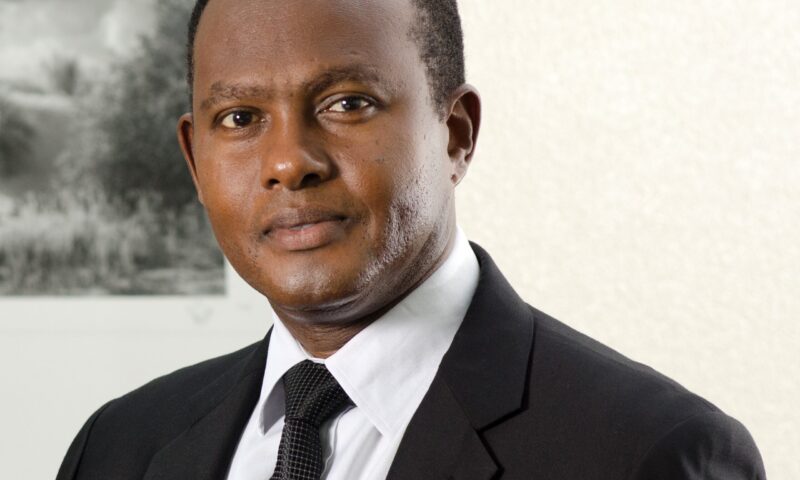By Favour Nnabugwu
The Federal Government has inaugurated 16 members of National Pension Commission (PENCOM) board, to proffer innovative and feasible solutions to the challenges of the pension administration in Nigeria as Dr Oyindasola Oni is the Chairman.
The board chaired by Dr Oyindasola Oni, has Aisha Dahir-Umar, Clement Akintola, Mr Anyim Nyerere, Mr Charles Sylvester, Mr Festus Dauda, Mrs Anita Shitu, Comrade Ayuba Waba, Dr Bobboi Kaigama, Dr Abel Afolayan, Dr Timothy Olawale as members.
Others include Mr Edward Adamu, Mr Lamido Yuguda, Mr Oscar Onyema, Mr Olorundare Sunday, and Executive Commissioner (Administration) representing the North West geo-political zone (pending senate confirmation of the nominee).
Dr. Remi Oyindasola Oni was the Executive Director, Corporate Banking. Until his appointment on April 15, 2016, he was Executive Director, Corporate & Institutional Banking, Nigeria and West Africa at Standard Chartered Bank. He also had concurrent primary responsibilities for the International Corporates Client Segment business for Standard Chartered Bank in West Africa.
Prior to his appointment as Executive Director in Nigeria and West Africa, ‘Remi held a variety of senior management roles including Executive Director/Head of Origination & Client Coverage at Standard Chartered Bank in Uganda and concurrently Regional Head, Network Clients business for SCB in Africa and Head of Local Corporates in SCB Nigeria.
A seasoned banker with over 24 years’ experience in Corporate Banking, Corporate Finance, Commercial Banking and Retail Banking, Remi brings to bear on the Board of FirstBank practical skills set in the areas of deals origination and structuring, relationship management, business management and strategy.
He holds an MBA in Finance from the University of Ilorin, a Doctor of Veterinary Medicine (DVM), as well as Master of Science in Public Health and Preventive Medicine from Ahmadu Bello University, Zaria. He is an honorary member of the Chartered Institute of Bankers of Nigeria (CIBN), a member of the Equipment Leasing Association of Nigeria (ELAN) and the Nigerian Veterinary Medical Association (NVMA).
‘Remi has also attended trainings in many renowned international institutions, including the prestigious Oxford University and INSEAD, Singapore campus. He is happily married and widely travelled.
Mr Boss Mustapha, Secretary to the Government of the Federation (SGF), at the inauguration on Thursday in Abuja, explained that members of the board were also urged to ensure the implementation of sustainable pension policies.
While congratulating the board members, Mustapha noted that Nigeria, in recent times had some challenges in the area of pension administration, in spite of the constitutional and statutory provisions that guarantee pension payment
According to him, “it was these challenges that necessitated the pension reform of 2004, which introduced a mandatory Contributory Pension Scheme (CPS) for employees of both public and private sectors, with few exceptions in the public service.
He, however, regretted that the sector could not meet its mandates of which it was established for, hence the need to re-establish the board to look into the challenges of the sector
“As a government, we are always conscious of our responsibilities with regards to payment of pensions to eligible retirees in the Federal Public Service.
“We are committed to discharging these responsibilities in spite of the perennial challenges, especially as caused by the global COVID-19 pandemic manifesting in dwindling revenue accruing to the nation,” he said.
The SGF, however, highlighted the objectives of the board to include formulating and providing general policy guidelines for the discharge of the functions of the commission.
Mustapha also used the occasion to admonish the board to desist from involving directly in the day to day management of parastatal and agencies.A
Accordingto him, it is only a minister who exercises control of parastatals at policy level through the board of the parastatal.
Respondingn behalf of the board members, Dr Oyindasola Oni expressed appreciation to President Muhammadu Buhari for finding it appropriate to appoint all of them as board members of PENCOM, adding that they were indeed very grateful.
Oni therefore, pledged the board`s commitments to steer the affairs of the commission without any blemish.A
Aisha Dashir-Umar, Director-General of PENCOM, who is also member of the board, gave assurance that the board would work as a team to discharge its responsibilities to achieve the set goals of the commission

